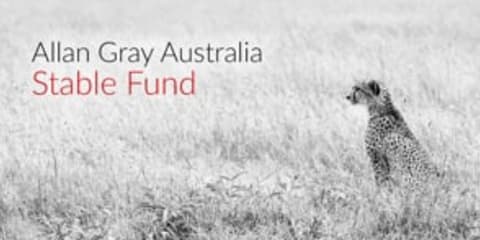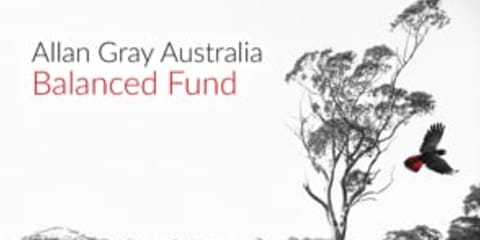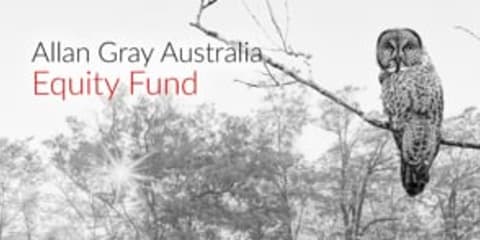This Fund aims to provide you with long-term returns that exceed the Reserve Bank of Australia cash rate, with less volatility than full exposure to the Australian sharemarket.
About
In this episode of our Insights Series, Chris Hestelow, Senior Investment Specialist from Allan Gray offers a sharp, fundamentals-driven perspective on Australian equities.
He highlights the narrow drivers of recent market returns, notably the outsized impact of CBA, and warns of index distortions. With the broader market trading at a premium, Chris identifies some compelling opportunities hiding just beneath the surface.
Why Watch?
This is a must-see for anyone seeking exposure to Australian equities via a disciplined, principles-led approach to investing.
Hello, I'm Darren Connolly, CEO at Investment Markets, and I'd like to welcome you to the Super Six. Six experts, six asset classes, and one outlook for your investment portfolio. Before we start, I need to remind you that this is all general advice and general information only, and nothing that you see or hear should be construed as an investment recommendation. You will need to decide what is right for you. With me today is our expert on Australian equities, Chris Hestelow, Senior Investment Specialist at Allan Gray. Now, Chris, what have been the main themes in Australian equities over the last 12 months? Can you tease those out for us?
Sure. So it really has been a fascinating 12 months for Australian equities. There's been a lot that's happened in markets that have had an impact. So we've had abating inflation, tariff announcements...
Lots of tariff announcements, Chris.
Lots of tariff announcements with Trump with his big sign on April the 2nd. But look, we are fundamental investors at Allan Gray. So I'll focus a little bit more on the fundamental side of things than on the macro side of things. When I say fundamental, I mean at the individual business level. Overall, you know, the Australian share market returned 13.7% over the 12 months to 30 June. So quite a nice healthy figure. But the drivers of those returns were very, very narrow. So, you know, for example, Commonwealth Bank, it's been quite amazing to watch what has happened with that stock. It delivered 4.4% of that 13.7% overall return.
So nearly a whole third in the one stock, Chris.
That's right. One out of 300 companies that populate the ASX 300 index, accounting for almost a third of overall returns. You know, as fundamental investors, we in our view, CBA is ludicrously expensive and we don't own any shares. But I think that's one thing investors should be aware of. You know, with a passive approach or when you invest in the index over time, the better a company does, the larger it becomes in the investor's portfolio. So two years ago, CBA was less than eight percent of the index. It's now getting up close to 12 percent of the index. And the golden rule in investing is to buy low and sell high. But sometimes, you know, the design of a market capitalisation weighted index like our index can force the opposite behaviour. So overall, the Australian equity market to us looks quite expensive in aggregate. But the good news is that the market's very, very dislocated. So there's actually a lot of companies that have languished and been left behind and that in our view are presenting very attractive investment opportunities. But if investors are going to be able to capitalise on those kinds of opportunities, they need to go one level below the index and look at the individual business level.
So they really, really need to know where to look.
That's right.
Chris, what separates Allan Gray's approach to Australian equities to others in this asset class?
Sure, so our approach is, you know, really distinguished by our three pillar investment philosophy. I think that's what really sets us apart. And that philosophy is that we are contrarian, fundamental and long term investors. And so what do each of those mean if we take them one at a time? By contrarian investing, I mean that we spend our time and our energy and our research looking at those companies that are out of favour with the broader market or that other people find uncomfortable to invest in for some reason. You know, as humans, we have a natural human bias to be overexcited on the upside when a company's done well and to be overly pessimistic on the downside when a company's done poorly. And that's because what we tend to do is just extrapolate what's happened in the recent past far into the future. So we expect the winners to keep on winning.
Forever.
And the losers to keep on losing, right. And so what that means is that natural human tendency often leads to the market mispricing opportunities when a company has had a bit of a tough time. And that's where we try and look for our opportunities. Sometimes they're justifiably cheap and we shouldn't own them, but many sell-offs are opportunities that we can step in and capitalise on.
So it's not contrarian just to be a contrarian for its own sake.
Exactly right. Yeah, I couldn't have said it better. That second element to what we do is very much fundamental investing. So any company's value is the future cash flows or the earnings that will generate for us as owners discounted to today. It doesn't matter if it's Apple or the local corner store. And so that's what our nine analysts here in Sydney focus on, what we expect the earnings of the business will be. We don't employ macroeconomists. We don't try and predict the timing or magnitude of macroeconomic trends or events. We just think that's incredibly difficult to do with any sort of consistency. And so instead we focus at that individual business level where the quality of information is much greater. And then finally, the third component to what we do is that we're very long-term thinkers and investors. So typically when we're valuing companies, we're looking at those companies on kind of a three to five-year time horizon. Our average holding period in our flagship equity strategy has been about four years. And we think a long-term approach can be a big competitive advantage when it comes to investing. It can allow you to look at short-term volatility as an opportunity rather than a risk. And so that's what separates us. We are contrarian, fundamental and long-term investors, and we stay very true to that philosophy over very long periods of time.
And happy to stay away from the noise generated by Mr Trump and all the tariffs.
That's right. I mean, I would say we're very happy to sit on the sidelines if there's particular parts of the market that are frothy and that people are excited about.
How should investors think about Australian equities within their own individual portfolios?
Sure. So Australian equities are likely to be a key driver of returns in an overall portfolio. They're often thought of like global equities, global companies, as kind of the growth engine in an overall diversified portfolio that are then tempered with other allocations to more defensive assets held alongside equities like government bonds or cash. In terms of Australian companies specifically, they are known for their, you know, generally for their strong dividend culture. So there's many companies in Australia that pay regular, fully franked dividends, and those can be quite favourable for some investors from a tax perspective.
Yes, there's definitely a cohort out there who like fully franked.
Yes, including my 96 year old grandmother who still has her particular bank shares and calls me whenever there's a short, you know, sell off or something like that. But I think that there is a bit of a love affair with many Australians and the dividends that our companies produce. In terms of risk, like all equity investments, they are subject to potentially sharp sell-offs, particularly during global or domestic economic shocks. In terms of us at Allan Gray, we really think about risk as the permanent impairment of shareholder capital. So actually losing money on an investment, not on short-term price volatility. And often the risk of losing money arises from paying too much to own a company in the first place. That can be a recipe for poor returns. So our investment process is really focused on finding those companies that are trading at a discount to what we believe they're really worth. And in doing so, we try and protect ourselves from that impairment of capital. Doesn't always work, but that's what we seek to do. So what should investors expect from Australian equities as an asset class? Our Australian Equity Fund has delivered 8% annually since inception in 2006, net of all fees to the end of June, so quite a bit ahead of the overall benchmark. But if clients wanted or listeners wanted to have a look at those numbers in different time periods, they'd be welcome to jump on our website and have a look.
Chris, what should investors with a more conservative risk profile think about with regards to this asset class?
Sure. So look, a conservative risk profile will mean different things to different people. And so if anyone's listening and they'd like personal guidance with their positioning or risk profile, I'd really encourage them to speak to a financial planner. But speaking generally for a conservative investor or in a conservative portfolio, the allocation to Australian equities is likely to be quite a minority exposure. They're likely to have a higher weighting to more defensive assets like bonds and cash and those kinds of assets. To give you an idea of what it might look like in practice, we do run a more conservative offering or fund called the Allan Gray Australia Stable Fund. That fund is a combination of Australian equities, Australian companies, and cash or cash equivalents. And at this point in time, or at the end of June, we had 18% in Australian equities. So we have 82% in cash or cash equivalents. That fund has delivered 5.7% annually since its inception in 2011 to the end of June, net of all fees charged. But if people wanted to see other time horizons, they'd be welcome to jump on our website. I did have a look before coming in at the Morningstar database to see what the average conservative multi-sector fund had as an exposure to Australian equities.
And what did that tell you, Chris?
Yeah, so it sits at 11%, so quite a bit below where we are currently in our conservative offering.
What should investors with a slightly more balanced risk profile think about when investing in this asset class?
Okay. So again, Darren, for a balanced risk profile investor, balance might mean different things to different people. So I would really encourage people to seek the assistance of a financial planner if they wanted some help with their own risk profiling. But speaking generally, a balanced risk profile investor is likely to have a higher allocation to Australian equities than a conservative risk profile investor. And that's because they're likely seeking higher real returns over the long term. You know, over the long term, it can actually be risky to not take on enough risk. And that can be a bit of a confusing idea for some people to get their heads around. But ultimately, the purchasing power of our dollars is constantly being eaten away at by inflation. So if we're not generating investment returns, we're not really standing still, we're actually going backwards. So in order to grow our purchasing power and put us in a position to have a more comfortable retirement and do the things we want to do, we really need to be generating returns over and above the rate of inflation. To give you a sense of what the allocation to Australian equities might be within an overall balance fund, I might speak to our offering in the space, the Allan Gray Australia Balance Fund. At this point in time, we have 22% invested in Australian equities. We have a high weighting to global equities, so that's a 37% net exposure. And then held alongside those equities, we have our more defensive assets. So we have 28% in fixed income in cash and around 5% held in gold via the SPDR Gold Trust. So that's where we are in terms of our allocation, 22%. Again, I had a look at Morningstar to see where the average balance fund is in terms of its exposure to Australian equity.
How does that stack up, Chris?
That sits at 18%. So quite a bit higher than the 11% that we saw in conservative multi-sector offerings.
Chris, what is the forward outlook for the asset class? What are you particularly excited about?
Yeah, when we think about the Australian market outlook, again, Darren, I'm going to focus on the fundamentals and not on the macro side of things, because over the long term, fundamental value really has the highest predictive power of the investment returns that an asset will go on to achieve.
So we're looking through the noise, Chris, that's what you're saying?
That's right, that's right. So look, at this time in aggregate, the Australian equity market looks quite expensive relative to history across a number of valuation metrics. And one of the common valuation metrics that's often quoted is the forward price earnings ratio. And I won't get too bogged down in the detail, but essentially that metric says that it's the multiple of earnings that we're paying to own the companies in the Australian index and the earnings that are expected over the next 12 months. So the long-term average for the Australian market has been around 16 times. It's currently at 20 times, so quite a premium to where it's been historically. We talked a little bit about Commonwealth earlier. That's at close to 30 times. Its long-term average is about half that. And so frankly, those type of numbers don't necessarily bode well for absolute returns from a broad index exposure. But those kind of figures are just headline averages, right? And they disguise or they don't speak to the many exciting opportunities that exist across what is a very diverse array of companies that populate the broader Australian index. Our flagship portfolio, for instance, the Allan Gray Australia Equity Fund trades in aggregate at 15 times forward earnings. So around a 25% discount to the broader Australian market. We have been finding more attractive opportunities in areas like energy and materials, which are actually trading at a discount to where they have historically. But being contrarian investors, you know, you're not going to find us in the sexy growth stock that your taxi driver is telling you about, right? We often think boring is beautiful, and so the type of companies we own, or to give some examples, would be things like Alcoa, the alumina and aluminium producer, Ansell, which these days really just produce gloves, and Orora, a packaging company. We're really excited or optimistic about the prospects for these type of companies. Obviously, all investments carry risk, but we're excited about our portfolio as it currently stands, particularly on a relative basis. We think investors do in these kind of environments really need to look below the surface level and seek out those individual opportunities that are presenting attractive investments.
Thanks for your time and insights today, Chris. That was illuminating.
Thank you so much, Darren. Thanks for having me.
Thank you. Thank you for watching. For more insights from the Super 6 and to search, find, and compare hundreds of investment products all in the one place for free, go to investmentmarkets.com.au.
Meet the speakers


Related Investments
For those wishing to balance risk whilst seeking capital growth from a diversified portfolio of shares, fixed income, cash and commodity investments from Australia & overseas. The Fund seeks to earn long term returns, higher than the custom benchmark*.
Using Allan Gray’s contrarian investment strategy, the Fund seeks to provide a long-term return that exceeds the S&P/ASX 300 Accumulation Index (Benchmark).






